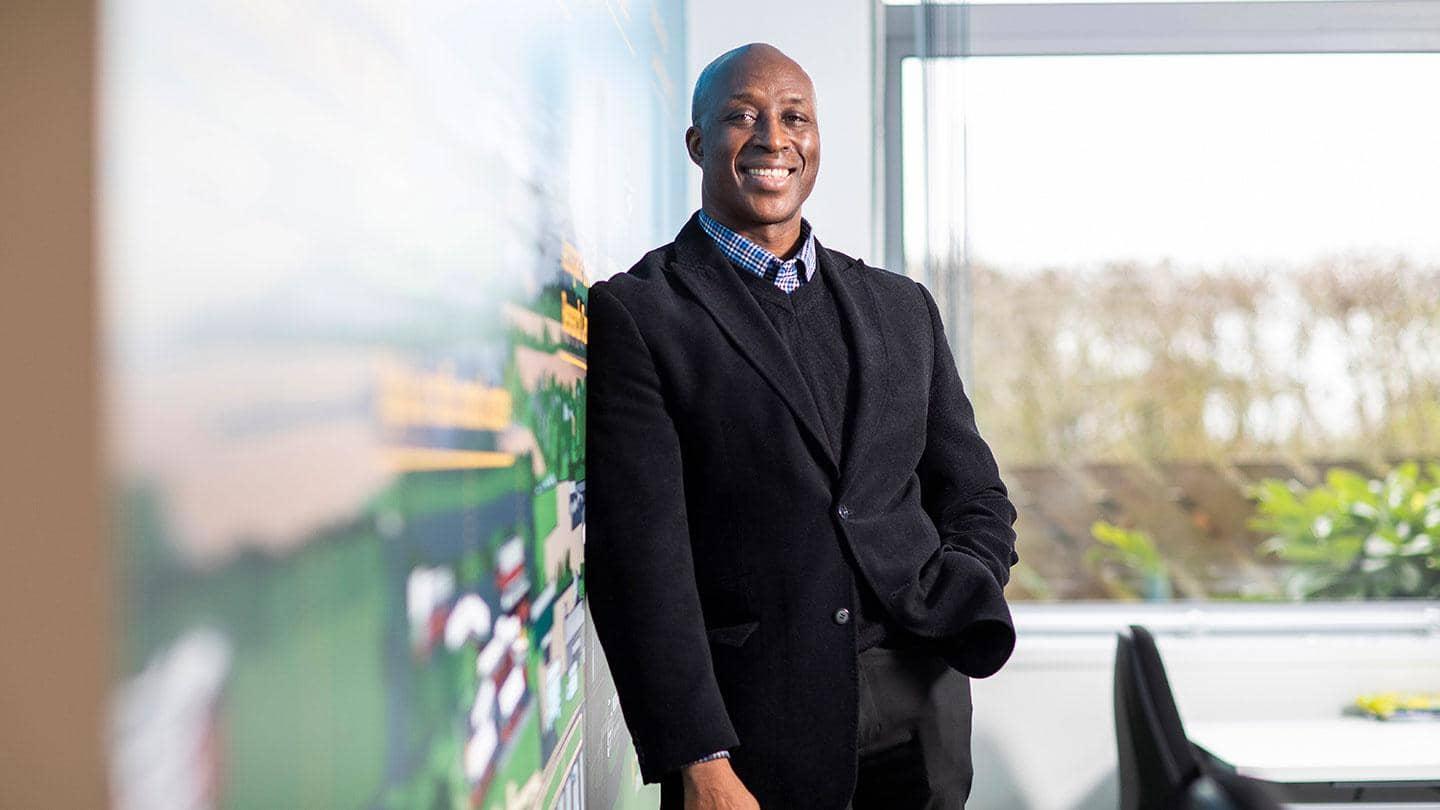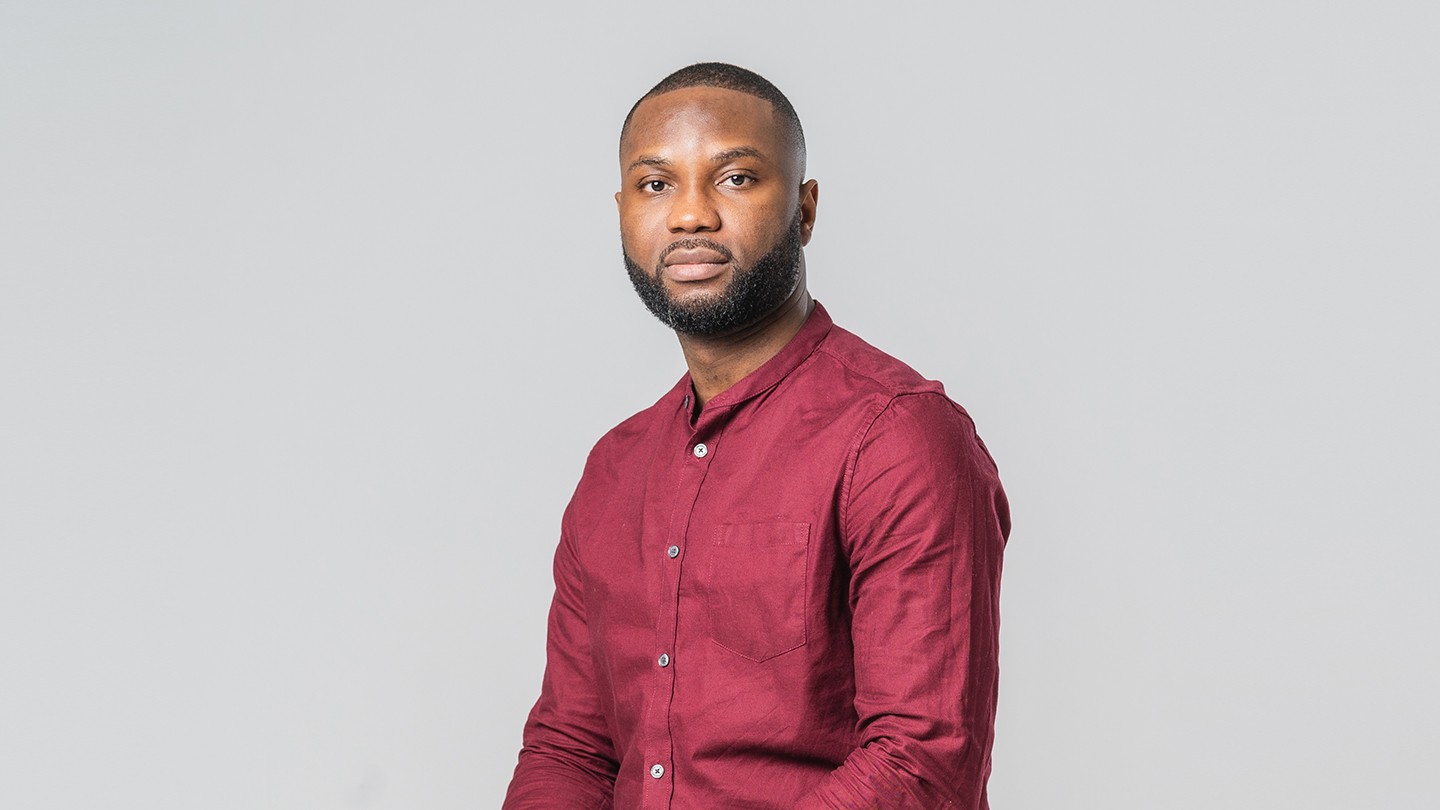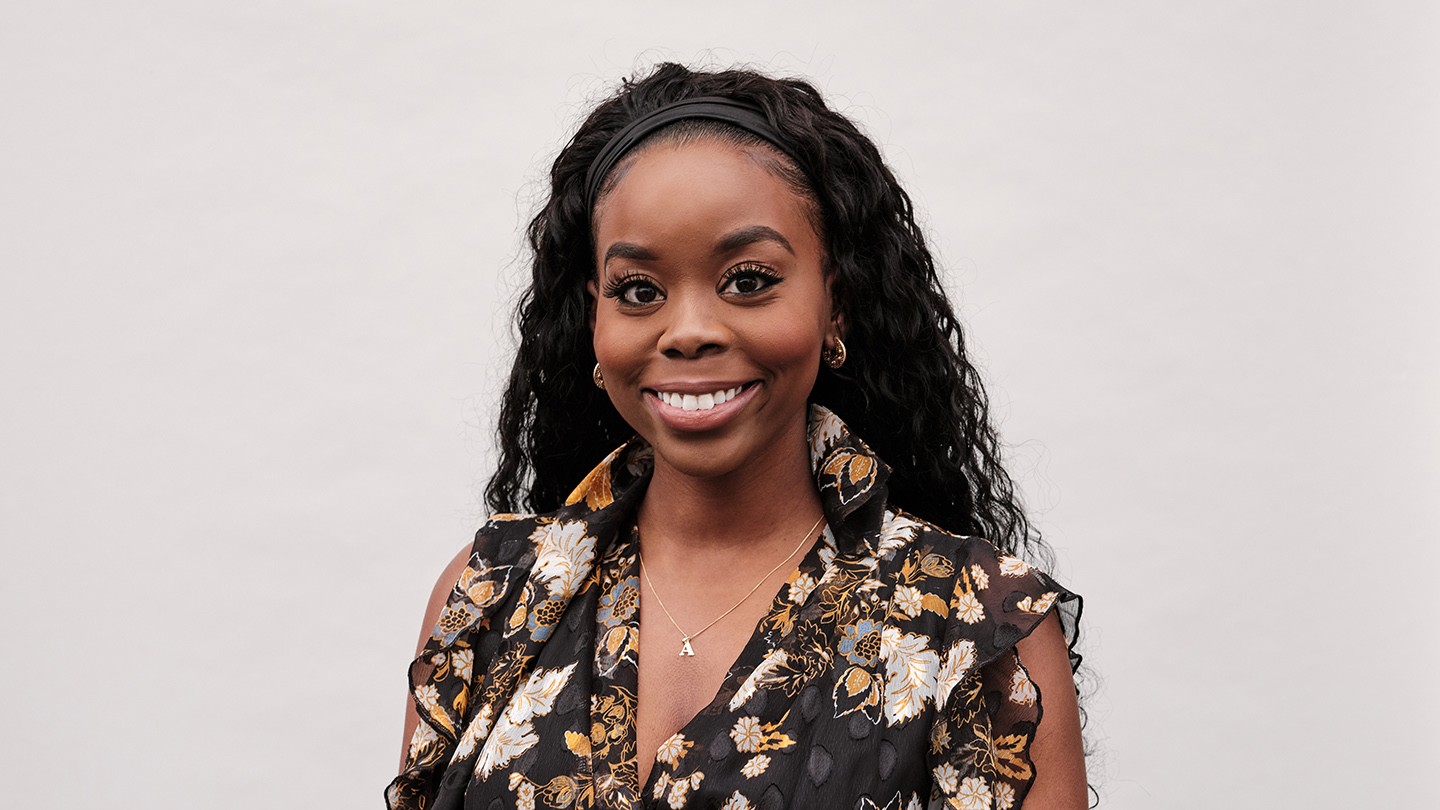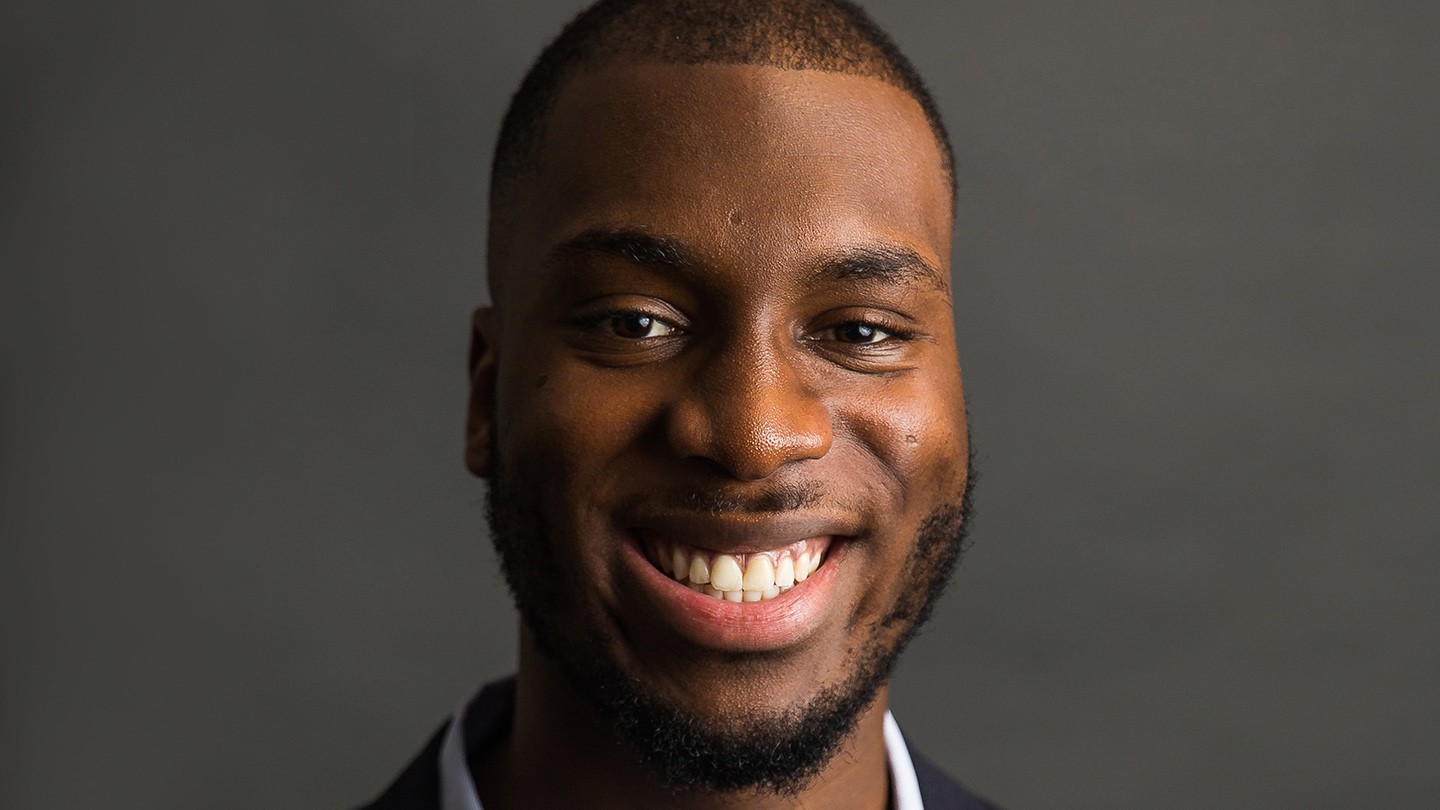
Innovation
Why do Black founders face extra barriers – and what can be done?
UK-based Black founders face multiple barriers, and receive only a tiny proportion of venture capital investment. Now Barclays is aiming to change things. We talk to four entrepreneurs from the bank’s Black Founder Accelerator about why it’s “the perfect programme”.
When Fredi Nonyelu founded his ‘smart spaces’ company Briteyellow, he needed the same level of support as anyone starting their own enterprise from the ground up.
“As an entrepreneur,” he says, “you're going to be rejected, no matter what your background is, for different reasons at different times. But if you’re Black, you also have the knowledge that there is bias going on, which you can't lay your finger on.
“Data can quantify that what's happening is actually worse than I imagined – there is something systemic that needs to be addressed to level the playing field.”

Benedict Odoom co-founded agritech startup, Kilimo IoT.
Just being able to understand exactly how our business will be able to attract funding has been great, because certainly we weren't ready to do that at the start of the programme – and we've now launched a fundraising round
Co-Founder of Kilimo IoT
Research suggests that just 0.24% of UK venture capital investment went to Black founders between 2009 and 2019, a total of just 38 entrepreneurs – with only 0.02% of venture capital investment going to Black female founders. At early-stage rounds of venture capital investment, only one Black female entrepreneur received funding – compared to 194 white female entrepreneurs. As a whole, businesses with ethnic minority teams received far less funding, but it was Black founders who fared the worst. Black people make up 3.3% of the UK population.
It’s statistics like these that inspired Barclays Eagle Labs Ecosystem Manager, Natalie Ojevah, to help create the Black Founder Accelerator to help break down the barriers to Black entrepreneurial growth. The 12-week programme of masterclasses and mentoring was designed to help bridge the diversity gap, as a partnership between Barclays Eagle Labs and social enterprise Foundervine.
One of the first 25 founders who recently took part in the Accelerator, Nonyelu’s company Briteyellow – which he founded 18 years ago – provides solutions for a range of industries. He says not enough is being done to address this funding gap: “I've built up a considerable amount of real experience, and I haven't come across many Black entrepreneurs. In all the accelerators I've done before this one, there was only one other Black founder. So, something is amiss.”
“Whether you’re looking for capital or information, it’s harder to come by”
Benedict Odoom, Co-Founder of agritech startup Kilimo IoT, and another alumnus of the accelerator, is also struck by the disparity. “The barriers Black entrepreneurs face are multi-layered,” he says. “As you progress, you don't see enough role models within the community who have been in there, done it and have been successful at creating something.”
It's absolutely crazy how just 12 weeks could completely transform your mindset, and also the way you do business. Now my business is completely scalable and that’s mostly because of Barclays
Co-Founder of Epiphannie A

Annie Amusu says she faced hurdles explaining to outside investors why her proposition works.
Now based in Glasgow, UK, Odoom emigrated from Ghana at 16 – and says this has also made it more difficult to find entrepreneurial support: “It’s clear that compared to someone who's already here, who's born here and has roots here, you don't have as wide a support network. Whether you’re looking for capital or information, it’s harder to come by.
“I think it then sometimes becomes a mental block, because you want to do something, but you feel like there’s no way you’re going to be able to get to the point where you want to be.”
Annie Amusu, a London-based entrepreneur, is another founder in the accelerator cohort. She co-founded Epiphannie A, a price comparison site for Black haircare and beauty products, during lockdown. Her business has grown quickly, generating 1,500 reviews in around nine months – and she is now looking to expand her offering into Europe.
But she cites the hurdles she faced explaining to outside investors why her proposition works: “Getting people who aren’t from minority backgrounds to understand Black people’s pain points around haircare is difficult. I live in London, where there is that big melting pot, but you can’t expect other people to understand where you’re coming from.”
This challenge hints at the wider lack of understanding across business networks. “But the more successful Black entrepreneurs there are,” adds Nonyelu, “the more we’ll hopefully begin to chip away at that.”
Joining the Accelerator
“Black founders need to go above and beyond just to be recognised,” says Samuel Ola, Co-Founder of Medified, who also completed the Barclays programme. “That means you're always striving for excellence. But that can be very unhealthy as there’s a tendency to push yourself too far.”
His product – an app which digitises medication leaflets for patients and pharmaceutical companies – was born from a desire to make a difference to the quality of patient care and understanding. “Everyone benefits from the new concepts or products that people come up with,” he says. “So, it's a deadweight loss to society if Black founders aren’t encouraged and uplifted. If there's a pool of people who don't have any motivation to go into entrepreneurship, it’s bad for everyone.”

Samuel Ola describes the Barclays Black Founder Accelerator as the “perfect programme” for his business.
Everyone benefits from the new concepts or products that people come up with. So, it's a deadweight loss to society if Black founders aren’t encouraged and uplifted
Co-Founder of Medified
Ola, who was born in Nigeria and raised in the UK, describes himself as “a natural entrepreneur – I was the guy who sold sweets at school and hired people to sell sweets for me”. He is still studying at university but is now seeking capital to take Medified to the next stage.
“The Accelerator was just what we needed,” he says. “Our team was quite uncertain – we needed some support, we needed a network and we needed advice. It was essentially the perfect programme for us.
“The masterclasses were comprehensive, and they were run by people who brought a lot of expertise. The fact that we were assigned to some incredible mentors, both senior staff within Barclays and from the startup ecosystem, was what stood out to me.”
“We also wanted to meet other Black founders, other people in the same situation,” Ola adds. “When you aren’t surrounded by people who are like you, doing the same thing, it can be quite discouraging. But to be within a cohort of talented Black founders was very inspiring.”
Odoom also relished “being in contact with other founders who were just head down, trying to create something that they're passionate about. It has been refreshing to see because you don't see a lot of it in my circles.”
Another highlight, he says, was strengthening his knowledge around investment: “Just being able to understand exactly how our business will be able to attract funding has been great, because certainly we weren't ready to do that at the start of the programme – and we've now launched a fundraising round.
“The momentum of the black lives matter movement”
The black lives matter movement has led to a tipping-point for Black business founders, thinks Ola. “The movement has been inspiring for a few years now,” he says, “but 2020 was a moment of, ‘Okay, we’ve had enough’. We've had enough of not being recognised, we've had enough of being stereotyped for negative things. There's a lot that we're doing that’s positive that could be recognised more.”
He says that the momentum of the movement and support from corporates like Barclays should not be allowed to wane – while Nonyelu adds that “there should be platforms that create more opportunities to level the playing field. I look at some of my peers over the years, who went on the same journey, and their outcomes are different. It boils down to access to capital. Short and simple: access to capital.”
Programmes that help to address these disparities can have a big impact, says Amusu: “It's absolutely crazy how just 12 weeks could completely transform your mindset, and also the way you do business. Now my business is completely scalable and that’s mostly because of Barclays.”
Find out more about the Barclays Black Founder Accelerator.